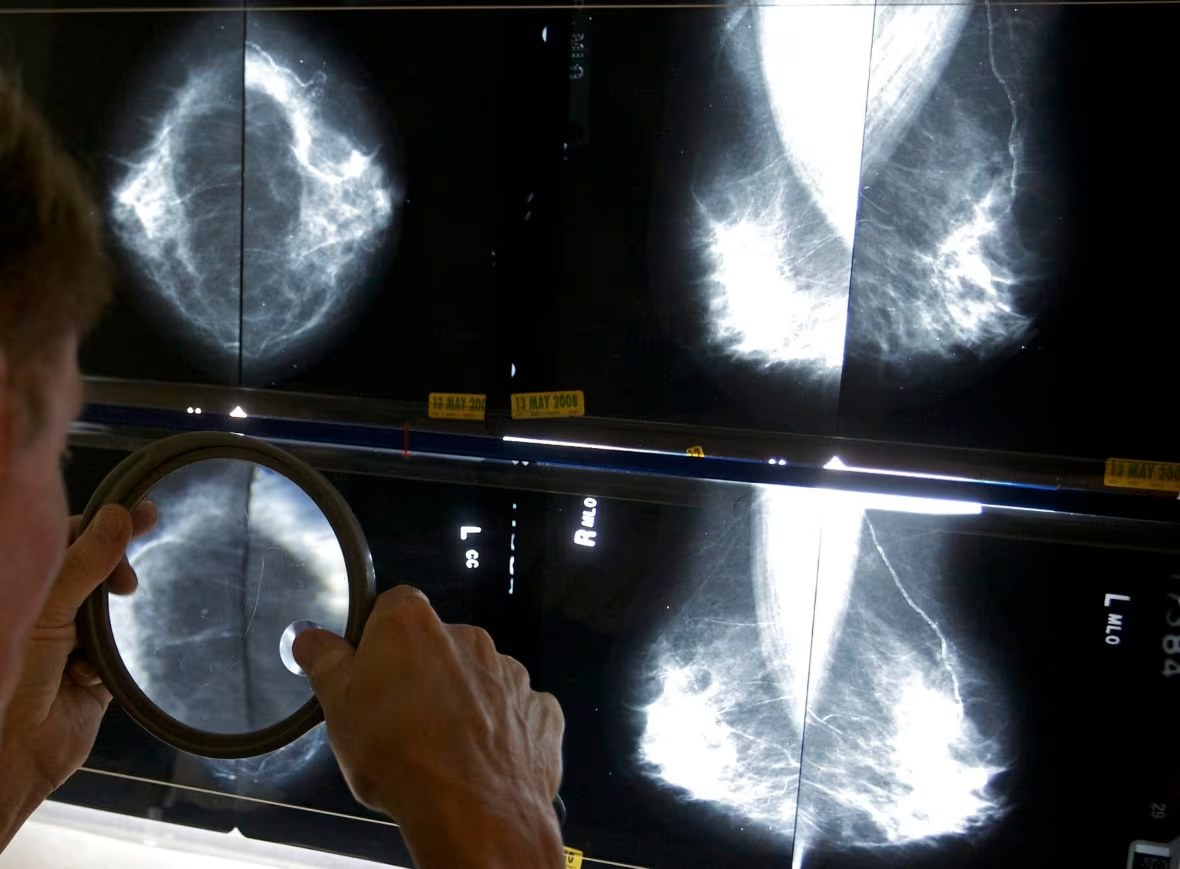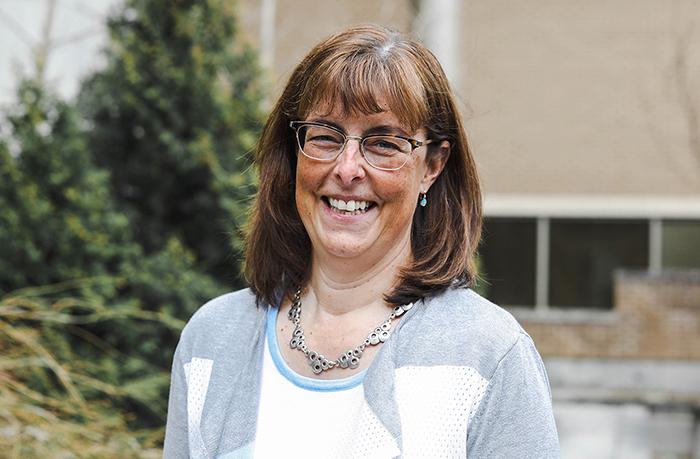Breast cancer rates are rising for women in their 20s, 30s and 40s, Canadian study says — here’s what you need to know
Karla Renic and Elizabeth Di Filippo | Posted: April 30, 2024

A new study published in the Canadian Association of Radiologists Journal revealed that rates of breast cancer in women are on the rise — especially for women in their 20s.
“Breast cancer in younger women tends to be diagnosed at later stages and is often more aggressive,” said the studies lead author Dr. Jean Seely, Head of Breast Imaging at The Ottawa Hospital and Professor in the Department of Radiology at the University of Ottawa in a news release. “It’s alarming to see rising rates among women in their 20s and 30s because they are not regularly screened for breast cancer.”
Seely’s team examined data of women aged 20 to 54 who were diagnosed with breast cancer. Their findings revealed a 45.5 per cent increase in the number of breast cancer cases in women in their 20s over the past 35 years. Similarly, there was a 12.5 per cent increase in women in their 30s, and 9.1 per cent increase for women in their 40s.
Where do we go from here?
While further research is required to understand the cause of the increase, Seely and her team are pushing for younger women to have access to breast cancer screening. Currently, access to self-referred mammograms vary across Canada; some provinces offer screening at 50 while others are lowering their screening age to 40.
“We’re calling for increased awareness among health-care professionals and the public regarding the rising incidence of breast cancer in younger women,” Seely said. “We need to adapt our strategies and policies to reflect these changing trends, ensuring that all women, regardless of age, have access to the information and resources they need to detect and combat this disease.

Chelsea Bland was 28 when a self-exam led to the discovery of a lump in her breast. Following treatment, Bland organized a support group for women ages 28-40 who were diagnosed with breast cancer.
“I hope that by bringing awareness to this study it makes people think twice about saying that being in your 20s, 30s and forties is too young to have breast cancer. In my support group, I have heard the same story over and over again,” Bland said in a news release. “Young women are not being taken seriously after they find a lump because they are told they are too young for breast cancer. This has ultimately led to delays in being diagnosed and being diagnosed at a more advanced stage. We are not too young for this and this is happening to women who do not have any high-risk genetic markers for breast cancer, myself included.”
Where each Canadian province stands on breast cancer screening
Alberta
Publicly funded routine breast cancer screening begins at age 45 in Alberta. Women aged 45 to 74, who live in Alberta and have no symptoms or family history, are eligible for regular mammograms every 2 years.
British Columbia
Regular mammograms are available to B.C. women at the age of 40, every two years. Though available, routine mammograms are still “not recommended” for ages 40-49, but starting at 50.
Manitoba
Manitoba encourages women aged 50-74 to have a screening mammogram every two years. Routine screening is not recommended for the 40-49 age group.
New Brunswick
Women living in New Brunswick can self-refer to a routine mammogram between the ages of 50 and 74. Mammograms are currently available to women aged 40 to 49 with a doctor referral. However, the eligibility age will be lowered to 40 in early 2024.
Newfoundland and Labrador
The breast screening program in N.L. offers routine screening mammography to women aged 50-74 years.
Nova Scotia
Asymptomatic women are recommended to get an annual mammogram in Nova Scotia at the ages of 40-49. Between the of 50 and 74, women are advised to get a mammogram every two years.
Ontario
Currently, Ontario’s breast cancer screening program allows routine mammograms for women aged 50 to 74. However, in fall of 2024, the eligibility age will drop to 40.
Prince Edward Island
A publicly funded mammogram is available to P.E.I. women annually, between the ages of 40 and 74.
Quebec
Women in Quebec are eligible for a mammogram to screen for breast cancer between the ages of 50 and 69, every two years.
Saskatchewan
Routine mammograms in Saskatchewan are available to residents aged 50 to 74, every two-to-three years.
Northwest Territories
The Northwest Territories public health recommends mammograms to women between the ages of 50 and 74, every two years.
Nunavut
There is no organized breast cancer screening program in Nunavut, but mammograms are available annually starting at the age of 40.
Yukon
Women in Yukon can access routine screening every year between the ages of 40 and 49. Between the ages of 50 and 74, it is recommended at least every two to three years.
Perspectives
Benefits of earlier breast cancer screening
“New and more inclusive science about breast cancer in people younger than 50 has enabled us to expand our prior recommendation and encourage all women to get screened every other year starting at age 40. This new recommendation will help save lives and prevent more women from dying of breast cancer,” wrote Dr. Carol Mangione, the immediate past chair of USPSTF.
“Compared to older women, women ages 40 to 49 years have a lower risk of breast cancer, but the types of breast cancer that develop are often more aggressive with a poorer prognosis. Furthermore, younger women have a longer life expectancy and fewer comorbidities,” according to a study published in the Journal of Primary Care and Community Health.
Important for Black women
“Mayo Clinic supports screening starting at age 40 because screening mammograms can find breast cancer early… Starting mammograms at age 40 may be particularly important for Black women. Black women tend to have breast cancer at a younger age. Black women are more likely to die of breast cancer, compared to people of other races,” noted Mayo Clinic (from Dr. Sandhya Pruthi).
Overdiagnosis concerns
“The harms of overdiagnosis are actually almost zero in women in their 40s… If you get breast cancer and you’re in your 40s, that is most likely going to actually lead to death rather than a woman in her 70s or 80s, because an older woman has other competing causes of death,” Dr. Jean Seely, head of breast imaging at the Ottawa Hospital, told Global News.
Most Canadians agree with lowering
“89 per cent of Canadians believe routine breast cancer screening should begin before the age of 50… 79 per cent of Canadians believe that Canada should prioritize gathering race-based data on cancer screening rates to address a lack of information on racial disparities,” according to a survey from Breast Cancer Canada and Angus Reid.
“What the public would like to see is better access to screenings and detection. The sooner we can detect it, the easier the treatment becomes. And I think that message is received, the public knows that,” Kimberly Carson, the CEO of Breast Cancer Canada, told the CBC.
Preventative costs over treatment costs
“We know that when we treat a more advanced breast cancer, they’re more likely to need chemotherapy, more likely to need to have a full removal of the breast (so) the cost to our health-care system in terms of treating advanced breast cancer is huge,” Dr. Jean Seely, head of breast imaging at the Ottawa Hospital, said to CTV. “We looked at the cost of treating a patient with metastatic breast cancer, one patient can cost over $500,000.”




